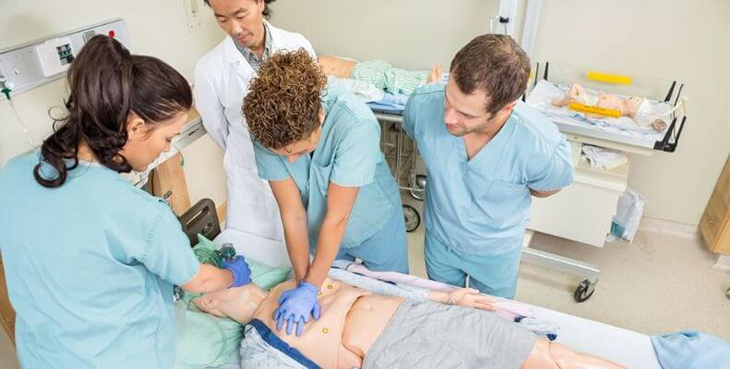
Nursing school can be exhausting, especially when it comes to the strenuous exams, the simulation labs, and the pressure of completing your nursing school clinicals. Although it is a great feeling to look back on your accomplishments both in the classroom and throughout your clinical rotations, it can be nerve-wracking to get started. Determining what to expect and how you can best maximize the experience is crucial to ensure you are getting the most out of your education and fully preparing yourself for your clinical rotations. By following the helpful tips outlined below, you will be better equipped to be successful throughout your degree as well as better prepared to take on your real-world experiences.
Build Relationships with Faculty
Building relationships and networking are essential regardless of the field you are pursuing. The closer you are to your teachers and professors, the easier it will be for you to ask questions and ensure you fully understand the topics being taught. They can also help to provide any guidance or assistance you may need when starting your career. They may even end up being a reference for you when applying to future positions!
Building relationships is also critical during your clinicals. According to Nurse Journal, throughout your clinical rotations, you will have the opportunity to talk with other nurses and healthcare professionals who were once in your shoes. They are readily available to help answer any of the questions you may have, as well as to help provide guidance while you are jump-starting your career. Another huge benefit of building relationships throughout your nursing school clinicals is the fact that those relationships can oftentimes lead to landing a job after school. Although landing a job is never guaranteed, many students have a better chance of being hired if it’s a facility where they previously worked or completed their clinical rotations. This is especially true if you built relationships with the right people within that facility. That is why it’s so crucial to ensure you are getting the most out of your nursing school clinicals and learning as much as you can from everyone that can be of help.
Volunteer
Volunteering is also important and something that nursing students should consider if they’re looking to gain more relevant industry knowledge. There is never a shortage of facilities where you can volunteer, such as nursing homes, your local hospital, or even organizations such as the American Red Cross. Not only does volunteering help you to expand your industry knowledge, but it also helps you to gain hands-on experience under the direct supervision of a registered nurse or other healthcare professional. Volunteering also helps to improve your overall mood and your confidence in yourself. The experience you will gain throughout volunteering will be extremely beneficial to you when it’s time to start your clinicals, as you’ll already be one step ahead and have more hands-on experience and knowledge than typically expected.
Job Shadowing
Like volunteering, job shadowing is also a great way to help prepare yourself for your clinical rotations. According to Premier Health, job shadowing is considered to be an observation-only experience; however, it’s still great practice you can gain before beginning your clinical rotations. Students will have the opportunity to interact and observe healthcare workers as they carry out their daily tasks and ask any questions they may have along the way. This is another great way to gain industry experience prior to beginning your clinicals and can help to set you apart from other students who didn’t take advantage of any extracurricular opportunities.
Preparation for Clinicals
Finding a college or university that ensures you’re gaining the right experience and preparation for your clinicals is important. Skill labs and simulation labs are great learning tools often used by colleges and universities to help prepare students for the experiences they’ll be exposed to throughout their clinicals. At Berry College, a nursing school in Georgia, they offer skill and simulation labs to ensure students are gaining the real-world training and experience they need, ultimately helping to prepare student nurses for success throughout their clinicals, and in their future careers.
Skill labs refer to specifically equipped practice rooms, or training facilities, that students in training can use to practice their clinical skills before being thrown into their real-life experiences. It can be thought of as a fault-forgiving environment since it’s all training based.
A simulation lab is similar but is designed to provide students with a realistic-looking simulation lab room. It also comes with manikins and the equipment typically found within a healthcare setting and allows students to develop and practice their skills without any risk of harming a patient. In other words, although the two are similar, skill labs are where you can take everything you learned in theory and put it to practice initially. However, simulation labs take that concept even further and allow you to combine the experience gained through your skill labs and combine it with your coursework.
Ultimately, every student and their college learning experience are different. However, ensuring you are taking the appropriate steps both outside and within your education to prepare yourself for your clinicals and future career is critical. By taking part in extracurricular activities such as volunteering and job shadowing, or building relationships with professionals, you’re working to build your resume all while going to school. The first step is to find the right school for you, and to ensure you’re taking advantage of all the opportunities available to you!


